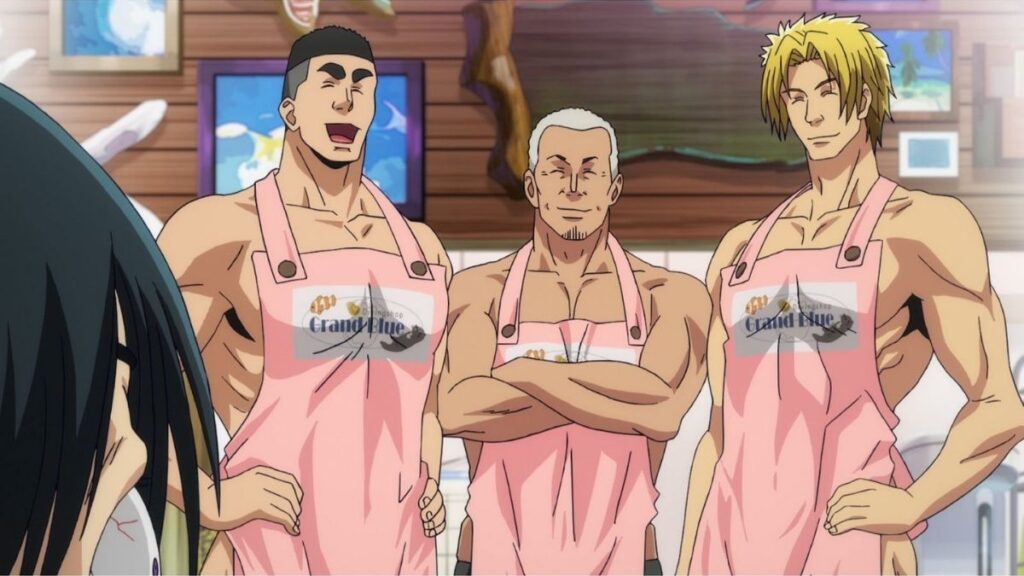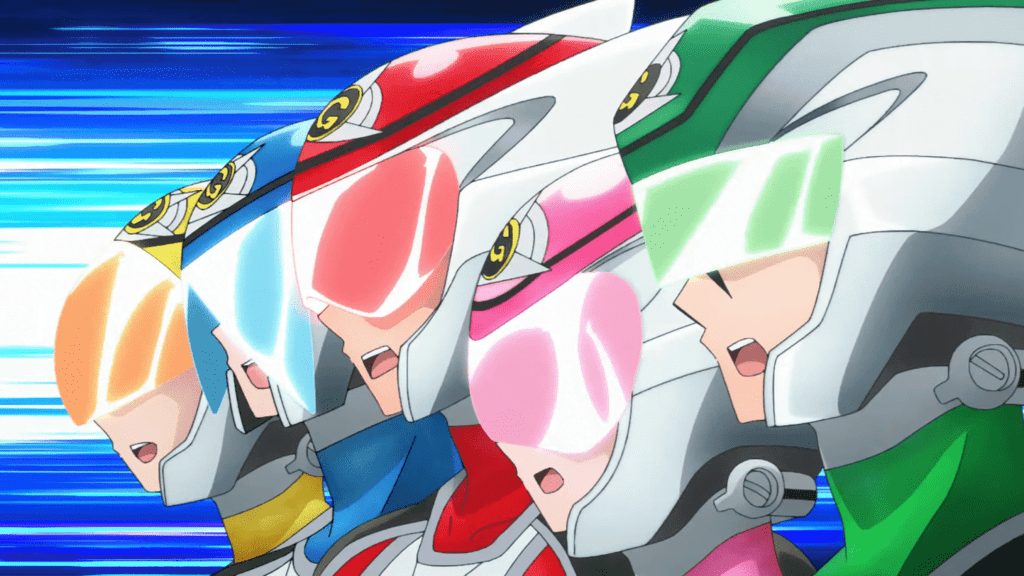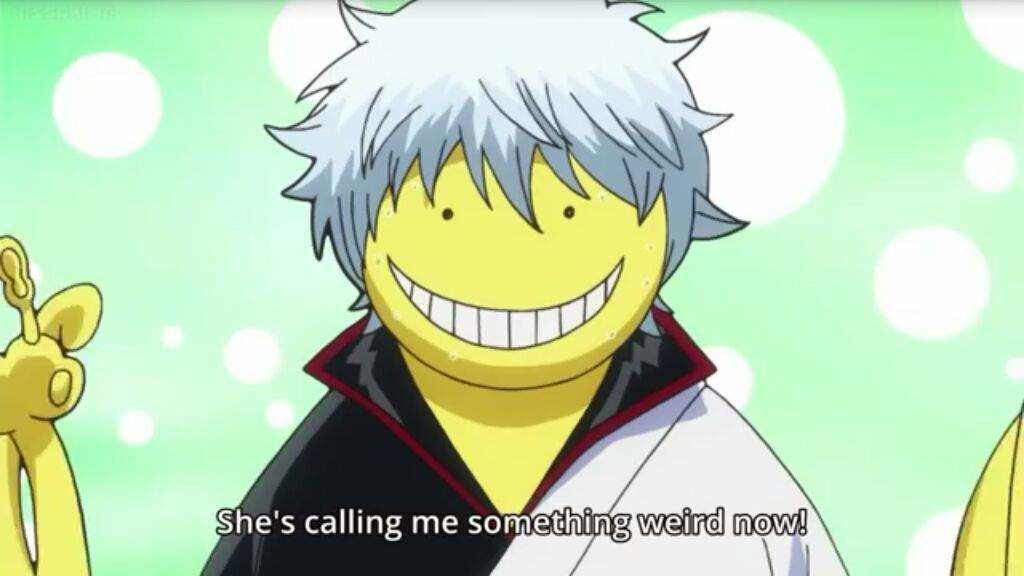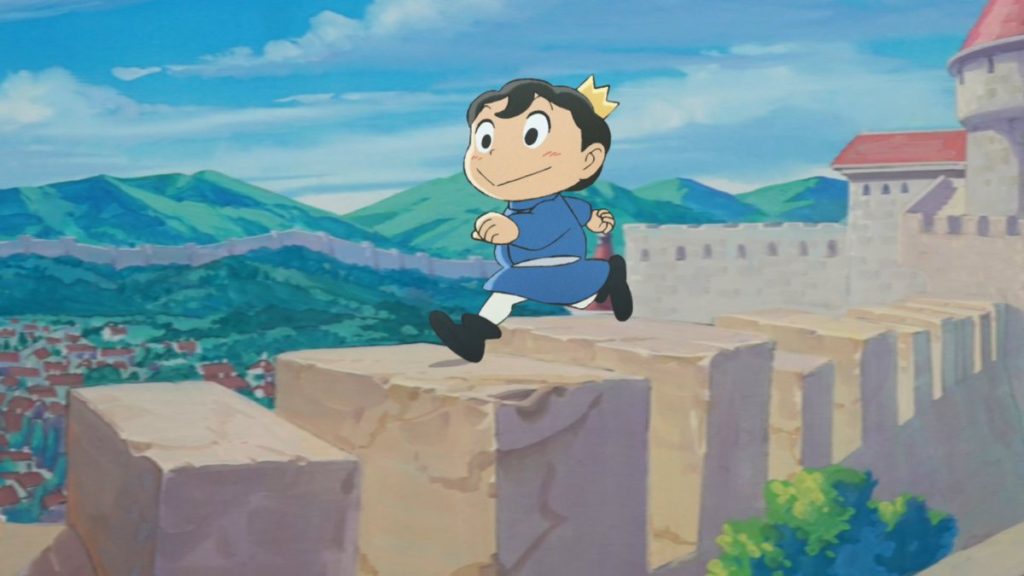Iori Kitahara is excited to travel to the seaside town of Izu for his first year of college. He moves into his uncle’s scuba shop, Grand Blue, but things don’t go according to plan.
Inside the shop is a bunch of naked and drunk upperclassman who get him drunk. After his cousin walks in, his college life starts to derail, but his work getting it back on track doesn’t go quite as planned either.
You expect a bit of bare flesh from a diving anime. You might also expect more of a focus on diving. However, the naked drunken dudes and various shenanigans make Grand Blue a beloved comedy anime. If you are looking for more anime recommendations like Grand Blue, head on down below.
Anime Like Grand Blue
For Fans of Seaside Weirdos
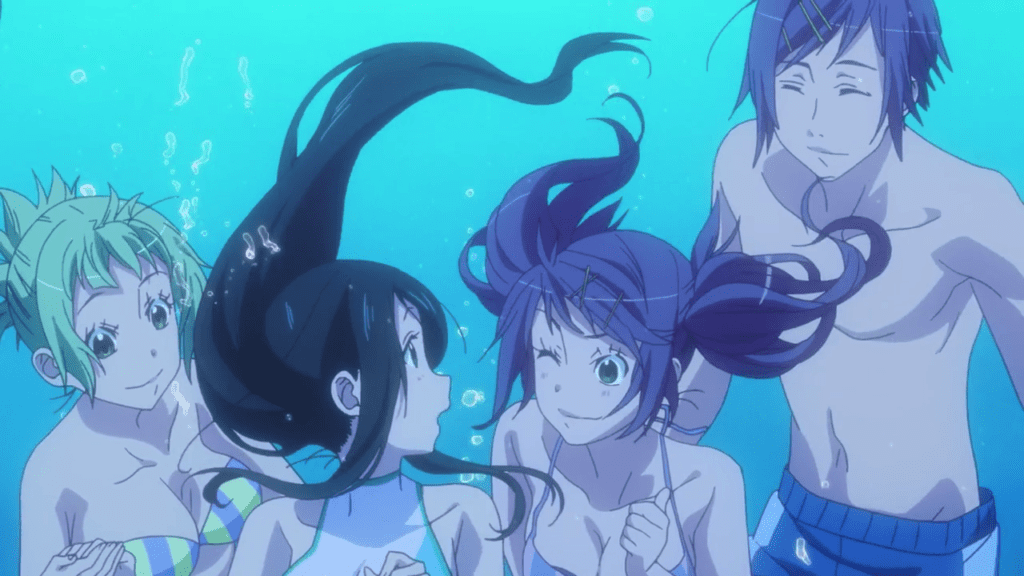
Amanchu
Hikari Kohinata grew up by the sea and as a result developed a deep love of scuba diving. On her first day of high school, her hobby and her relentless cheerfulness sweeps up those around her in a maelstrom, and they all cultivate a love for diving together.
You will note immediately that Grand Blue, despite being named after and set in a diving shop, has very little actual diving.
However, if you do want a diving-based anime, Amanchu is the way to go. Furthermore, it seems that anyone that lives by the sea long enough – according to anime – turns a bit strange in the head, because this diving anime also has some unique characters.
They are less unique than in Grand Blue, but that may be because they are high schoolers who don’t yet have access to alcohol.
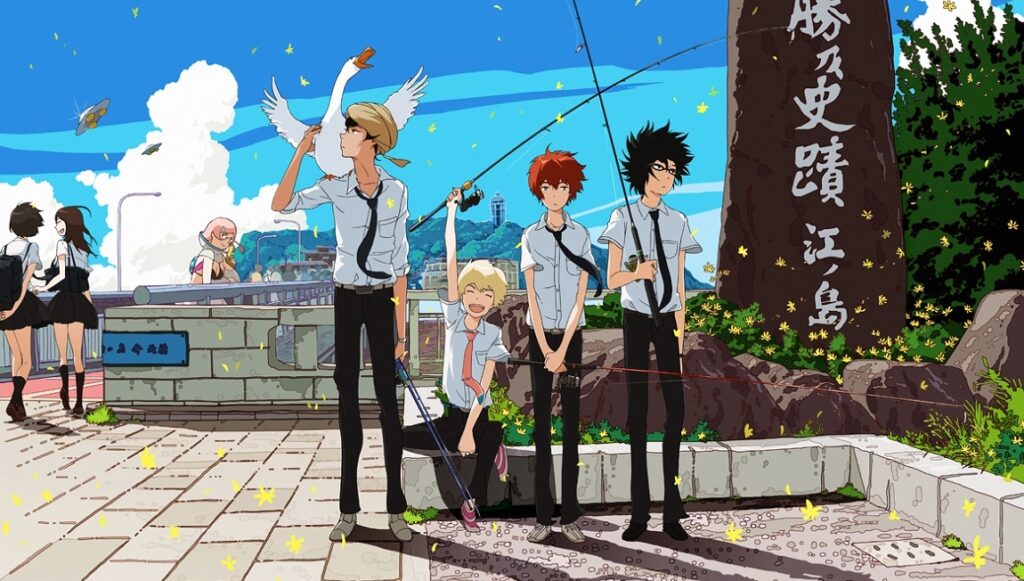
Tsuritama
Yuki Sanada is a socially awkward young man that, due to his grandmother’s job, has to move around a lot. He has all but given up on making normal friends until he moved to the town of Enoshima.
There, he meets a man named Haru who claims to be an alien. It turns out Yuki was right on one account, he would never make “normal” friends.
Both series take place in a seaside town and focus on seaside activities, or rather, that’s what they advertise on the box.
Instead, with both Grand Blue and Tsuritama you get very random comedy and a whole bunch of weird characters while doing profoundly little of the activity they advertised. However, Tsuritama has much less exposed skin.
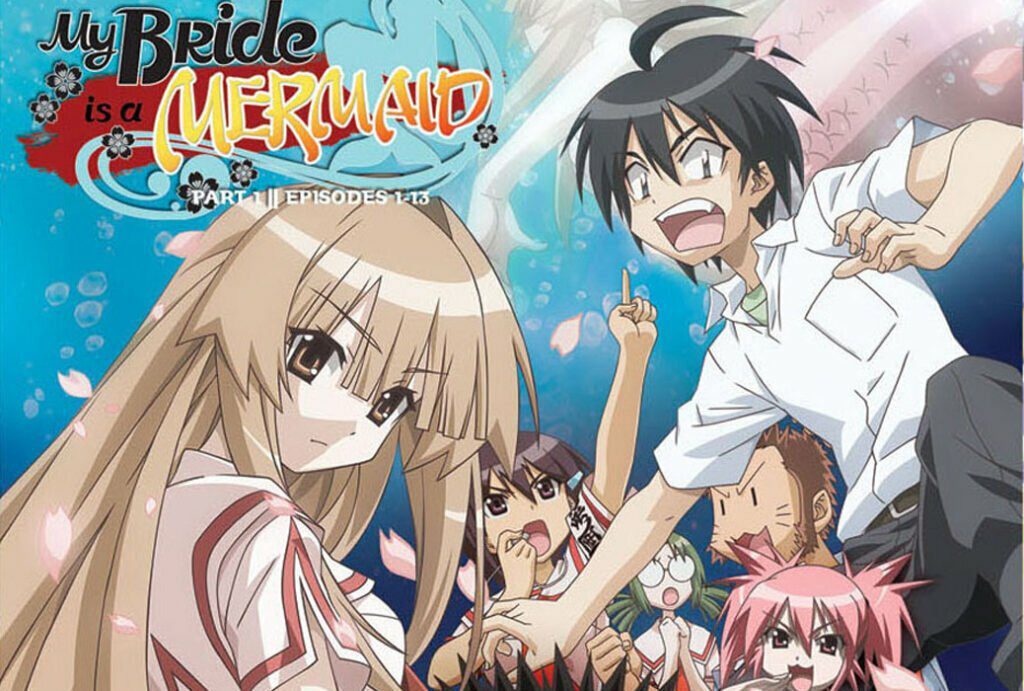
My Bride is a Mermaid
Michishio Nagasumi is living a normal life when he almost drowns on summer vacation. He is rescued by, of all things, a beautiful mermaid.
Unfortunately, she is from a yakuza family that states if a human sees a mermaid, either the human or the mermaid must die.
To save her life, Michishio agrees to marry the mermaid and become part of this crazy family.
Both Grand Blue and My Bride is a Mermaid follow a bunch of weirdos that either live in or hang out by the sea.
While Grand Blue is just your standard intense college comedy with frequently naked drunk men, My Bride is a Mermaid is a romantic comedy with an extra emphasis on the “comedy” part of that combination.
Just like how Grand Blue threatens you with developing a romance element, My Bride is a Mermaid isn’t a anime you watch for the romance. You watch it for the very strange and comical yakuza family of sea creatures that drive the comedy.
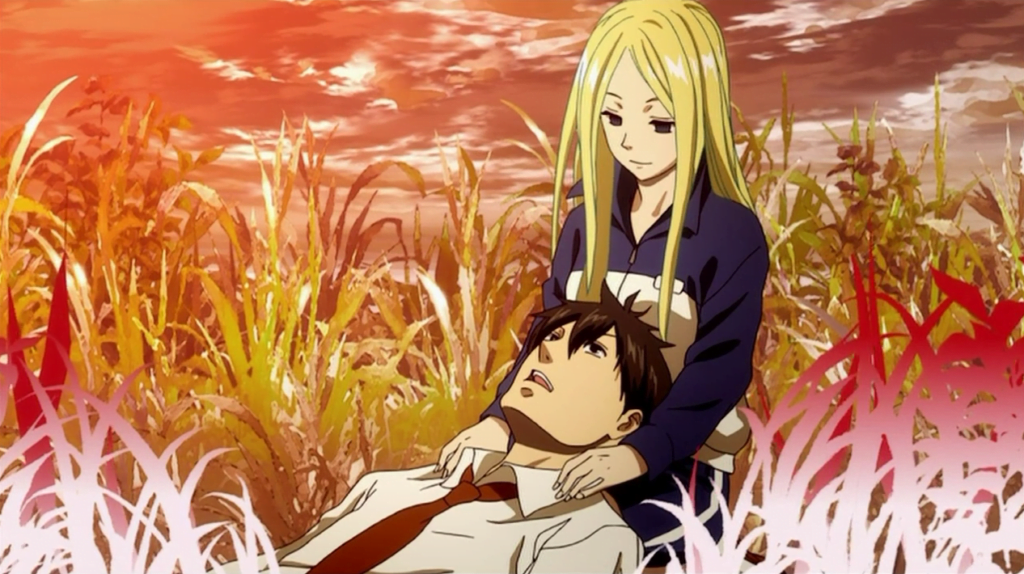
Arakawa Under The Bridge
Kou Ichinomiya, as the son of a wealthy businessman, has vowed never to become indebted to anyone. However, when he falls in the river under Arakawa Bridge, someone dives in to save him, thus he owes his life to this person.
She is a homeless girl named Nino who wants only one thing – to fall in love. In order to pay her back, he accepts her offer to be her boyfriend, thus moving out of his home and starting a new life under the bridge.
While Arakawa technically takes place by a river, what it have most in common with Grand Blue isn’t the water-side setting, it is the series of weird characters by that water-side setting.
Grand Blue actually keeps things pretty grounded and realistic with its strange characters, embracing the freedom and drunkenness of college life. However, Arakawa Under the Bridge takes oddity to the extreme. You never know quite what is going to happen next, but those moments of comedy are also leading towards character growth like in Grand Blue.
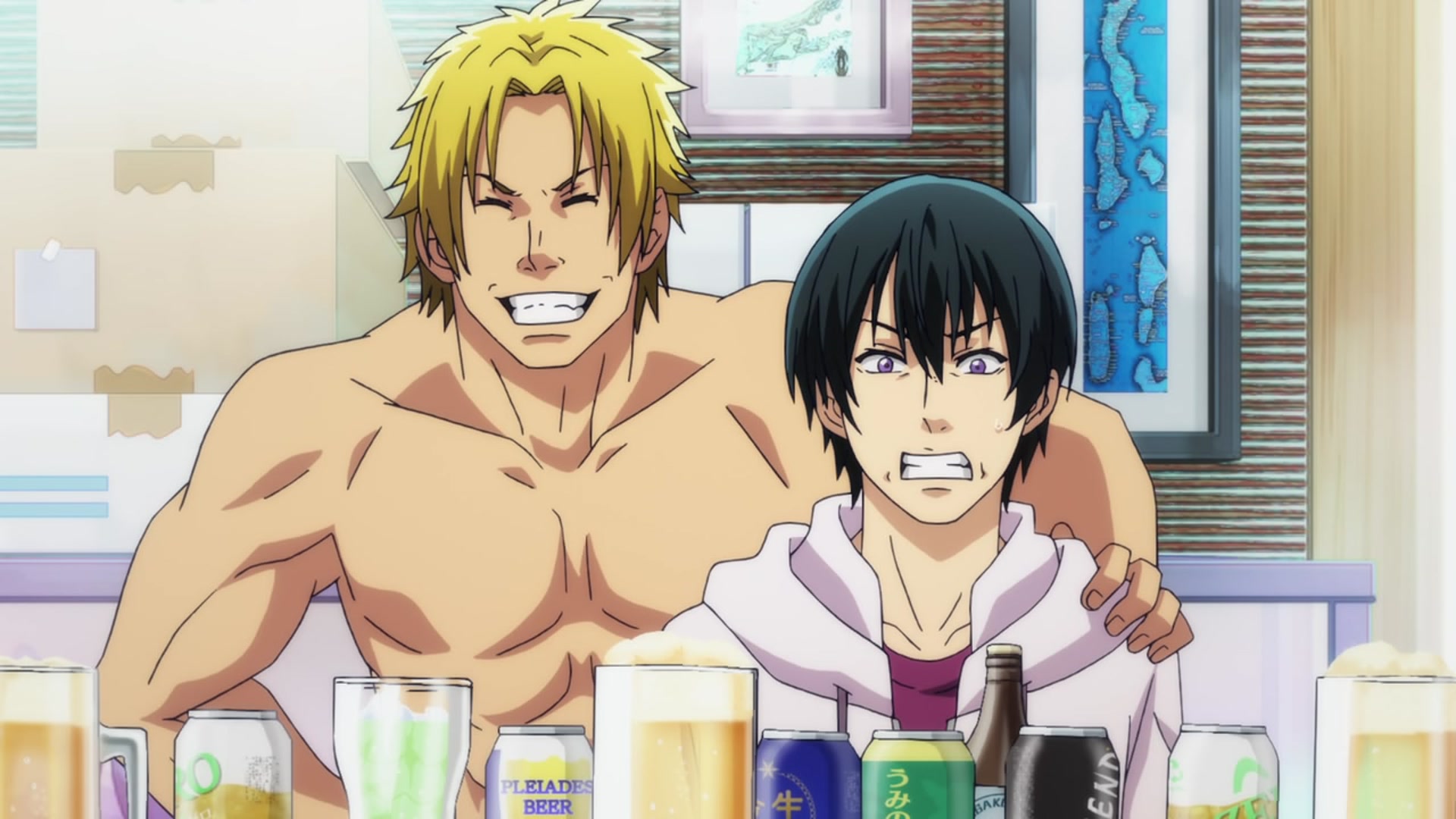
For Fans of College Life
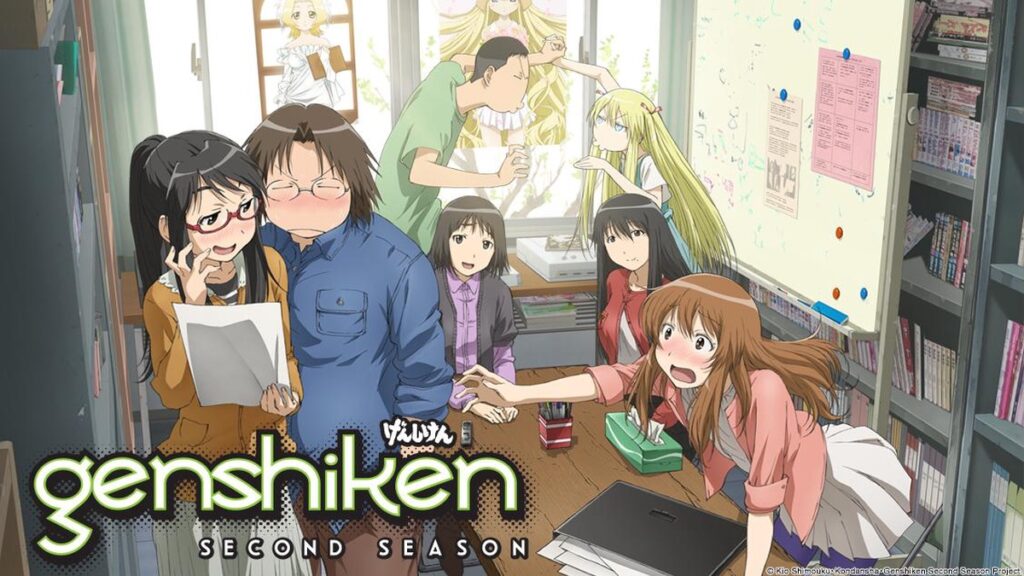
Genshiken
Sasahara Kanji is a college freshmen and hopes to join a club to share his secret thoughts about anime, manga, and gaming.
While ardently believing he is not an otaku, he gets utterly humbled by a member of the society for the Study of Modern Visual Culture, the club he wants to join. Will Kanji be able to accept his otakuness?
Genshiken and Grand Blue are both exquisite comedies about college club life. They focus on different types of clubs, but the relationships and the chaotic nature of the clubs are the same.
You never quite know what every new episode will bring, but it will angle to make you laugh. Genshiken, however, keeps clothes on.
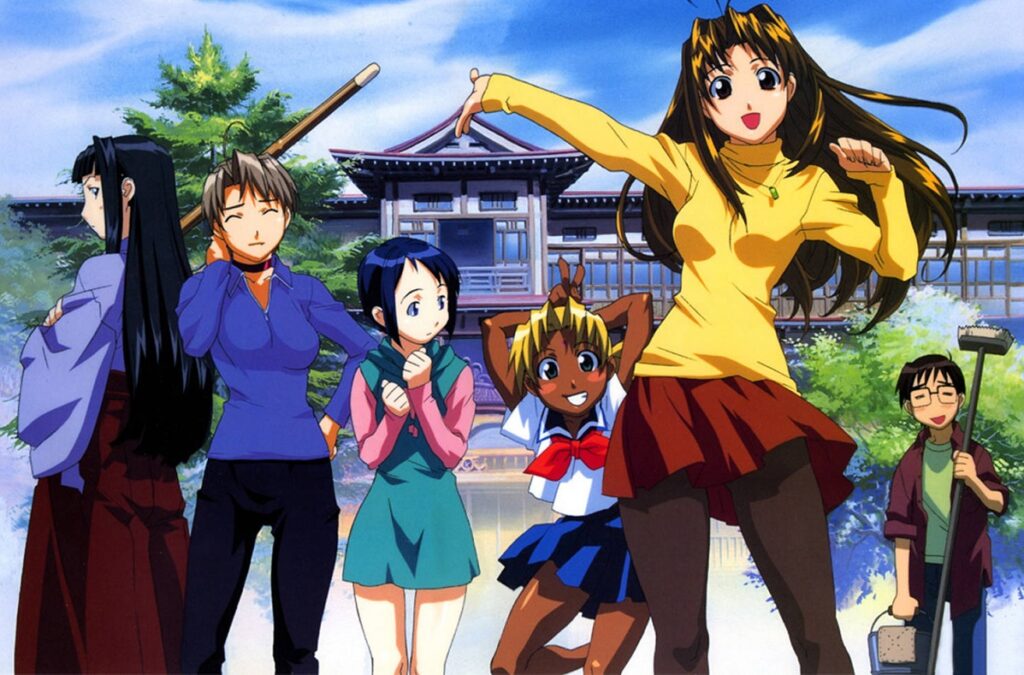
Love Hina
After making a childhood promise with a girl who moved away, Keitaro is dedicated to getting into the prestigious Tokyo University. Unfortunately, he is hopelessly stuck failing his entrance exams.
In order to continue trying, he moves out of his parent’s house into his grandmother’s inn to work as a manager. However, what he doesn’t know is that her hot springs inn is also an all-girls dorm.
A hot springs dorm and a seaside dive shop are not so different. They both attract people ready to bear bare skin, and both, apparently, attract various odd residents.
Furthermore, both Grand Blue and Love Hina have a focus on college students that still act like you would expect young people to act.
Both series excel in random comedy, but Love Hina comes with a side of light ecchi.
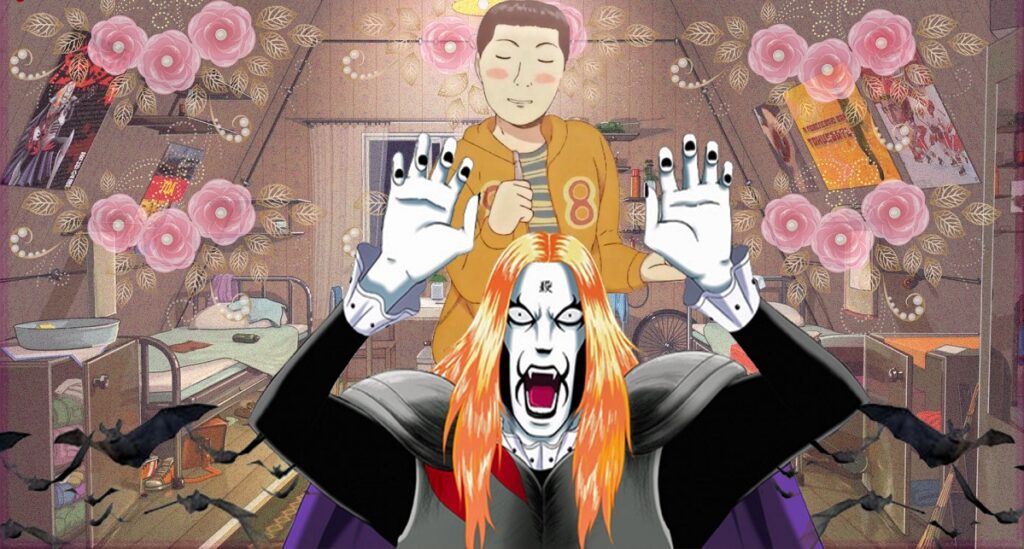
Detroit Metal City
The popular indie band Detroit Metal City is known for captivating audiences with its dark death metal. The lead singer in particular, Johannes Krauser II, is infamous for being like a demon straight out of hell.
However, unbeknownst to their many worshipers, Krauser’s normal self is the soft-spoken average college student Souichi.
Switching between them leads this young man on a number of misadventures.
Both series follow college boys who end up in particularly extreme adventures. While Detroit Metal City looks a bit more odd, it is a great, frequently raunchy and dark comedy like Grand Blue.
If you enjoy your comedy anime with minimal boundaries and an intensity that can border on the psychotic, Detroit Metal City is sure to tickle you.
For Fans of Intense Comedy
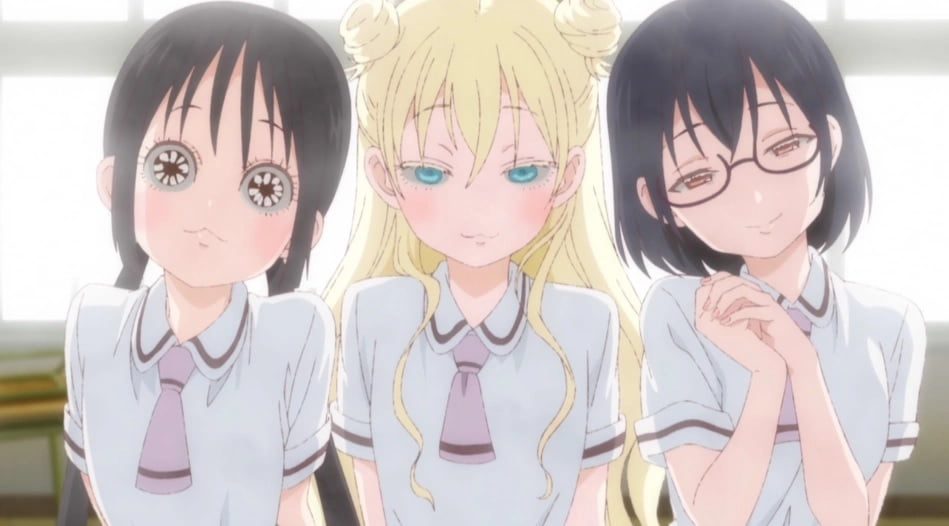
Asobi Asobase
One day, Olivia – blonde-haired, foreign-looking transfer student – lies to air-headed Hanako about her English skills. Despite her looks, she has actually lived in Japan almost all her life and can’t speak English very well, but succeeded in tricking Hanako.
This bit of mischief sparked a series of small games in the classroom between them, annoying the nearby deadpan Kasumi who hates games after being teased mercilessly by her older sister for always losing.
However, the mischief eventually draws all three of them into the Pastime Club, a club Hanako created just to goof off.
What Grand Blue is to drunk college boys, Asobi Asobase is to bored middle school girls. While those two demographics have little in common, Grand Blue and Asobi Asobase both enjoy an intense and over-the-top reaction to things that will leave you rolling.
Furthermore, while you expect drunk college men to be raunchy, you don’t expect it from middle school girls or in the art style that Asobi Asobase employs, which actually makes the raunchy, darker comedy even more effective.
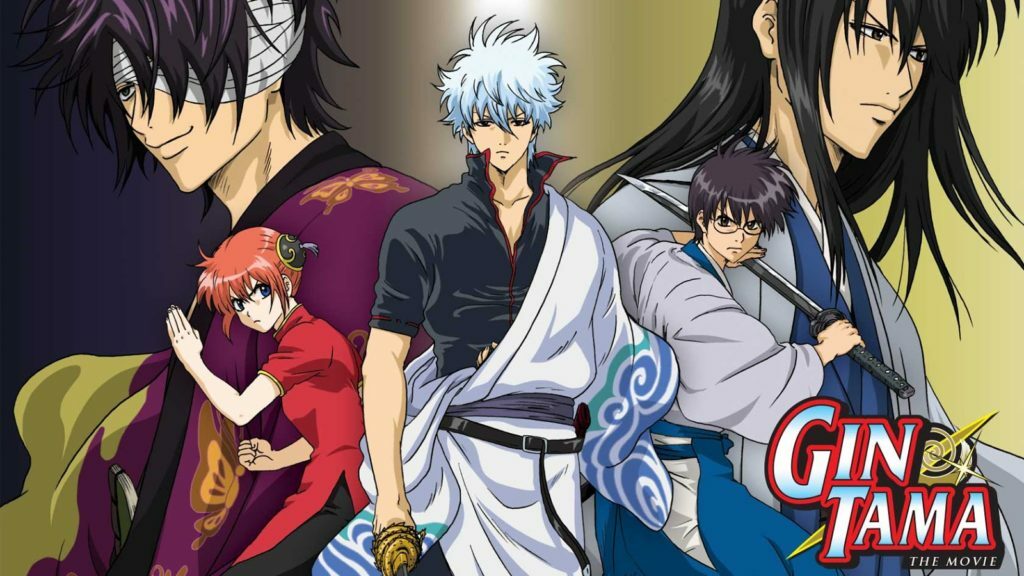
Gintama
After aliens invade Japan, they put a prohibition on swords. However, Gintoki Sakata still possesses the heart of a samurai.
Taking on odd jobs alongside of his friends, Gintama follows Gintoki during his chaotic life as an errand boy.
While different in setting and even era, you will note the comedy between Gintama and Grand Blue is extremely similar.
Both focus on the comedy of really random events, parody, and yet there is still a plot that moves forward.
Despite the image chosen, the characters in Gintama are more often clothed, but perhaps that percentage is higher because there are multiple seasons of Gintama compared to Grand Blue’s more compact nature.
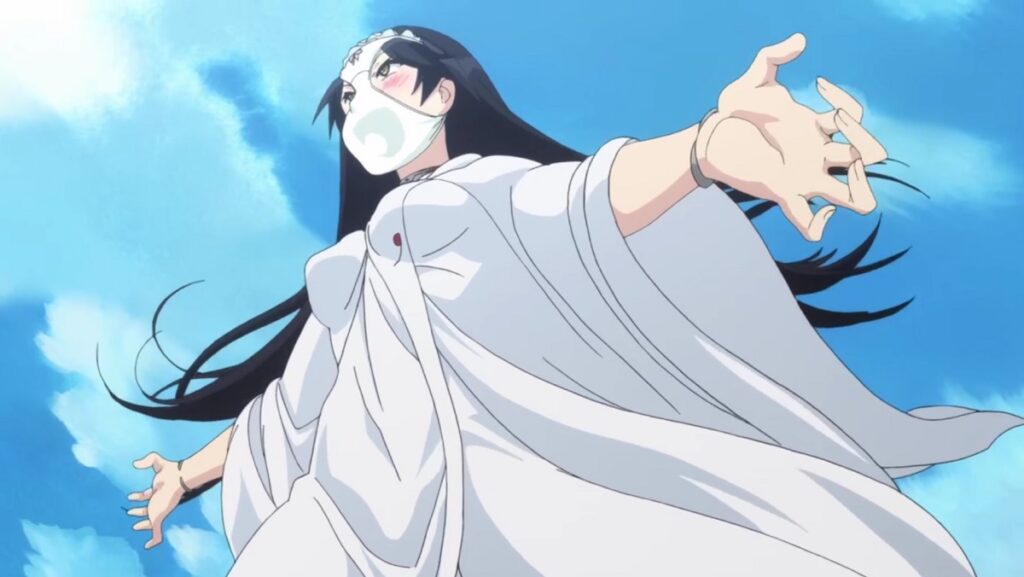
Shimoneta
While Japan was once the pit of sexual depravity, new morality laws and the Peace-Making System used to monitor the populace have seen Japan rise to the peaks of public morality.
With all lewdness censored to the point that children do not know how babies are made, an infamous erotic terrorist named Blue Snow has risen.
One day, average high schooler and the son of another infamous erotic terrorist, Tanukichi Okuma, is saved by Blue Snow on his way to his new high morality high school, only to be drawn into her new erotic terrorist organization, SOX, instead.
Grand Blue has dirty jokes, but Shimoneta is literally non-stop dirty jokes. There are no brakes.
If you prefer your main characters to strip early and often, then here is another comedy for you. However, while Grand Blue adds a variety of jokes as well as occasionally being about diving, Shimoneta really is just all sex jokes.
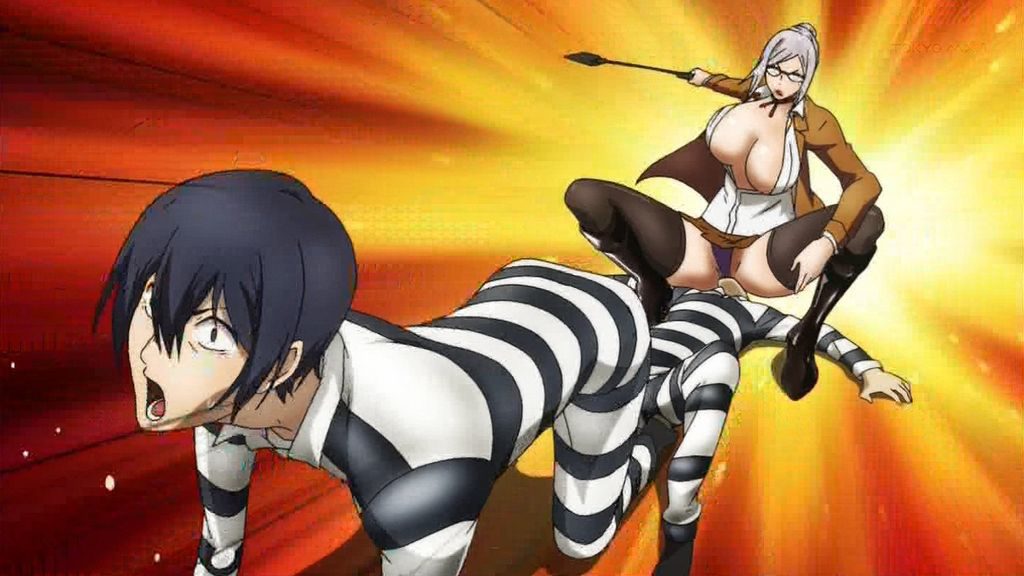
Prison School
The Hachimitsu Private Academy has always been a prestigious all-girls school that is prized for its high quality education and rigid discipline. However, they are now accepting boys as well as girls.
With a mere five boys in the schools, these boys think they are the luckiest men in the world. That is, until they get caught peeping and have their personal freedoms taken away in the brutal prison below the school.
While Grand Blue is a bit tamer, both Grand Blue and Prison School are what would most easily be labeled as “boy comedy.” While everyone can enjoy the comedy in both anime, you might tend to enjoy it more with a sort of latent horniness and the frustration that comes with it.
Both series enjoy their ecchi-like comedy, but Prison School enjoys it most. Instead of frequently naked men, Prison School is frequently lewd women doing BDSM shenanigans to punish the chronically horny teenage boys.
Both series are extreme comedies and frequently extremely strange to explain to anyone who walks in on you watching them.
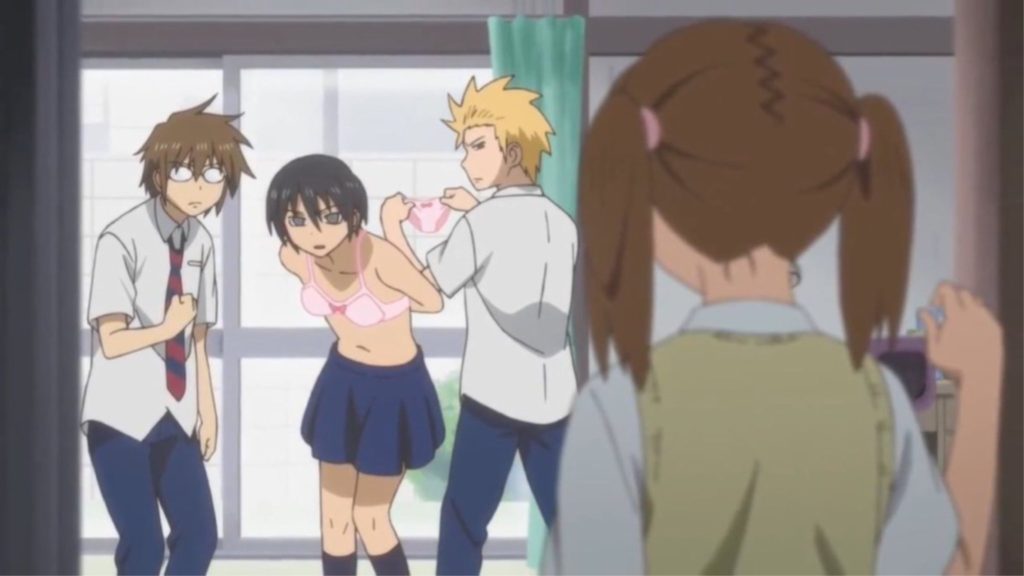
The Daily Lives of High School Boys
This is the tale of three boys that roam the halls of the all-boys school of Sanada North. Their lives are filled with nothing but giant robot drama and true love stories, at least in their imaginations.
In reality, these three boys are nothing special, but they try their best to pass the time.
Take out the liquor and occasional focus on diving from Grand Blue, and you would have The Daily Lives of High School Boys. Both series are about a group of boys that just do random, comical things to entertain themselves, and end up entertaining you, the audience.
If you like your comedy unexpected, but don’t necessarily need the characters stripping down at every opportunity, then The Daily Lives of High School Boys is your next comedy anime.
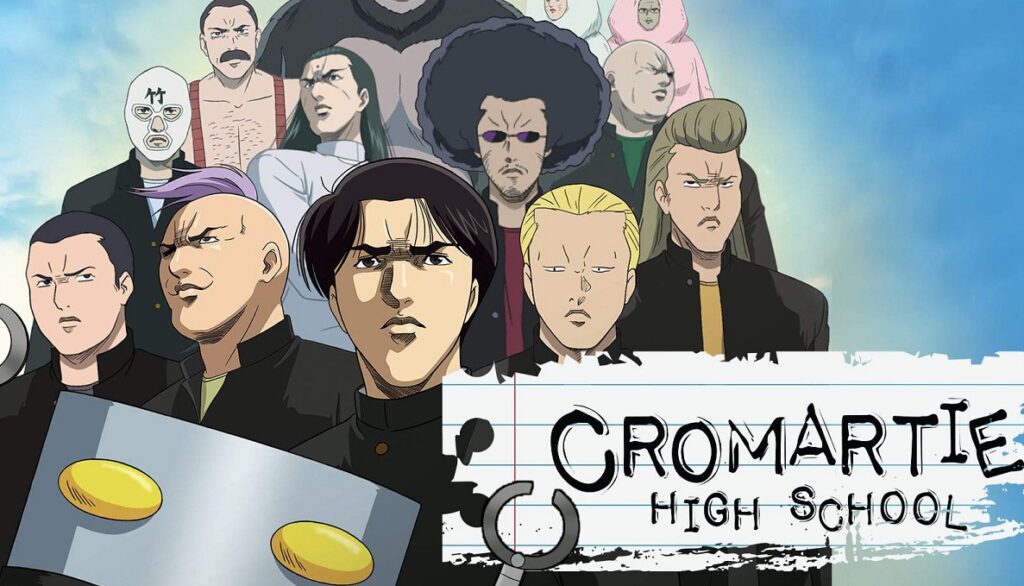
Cromartie High School
Takashi Kamiyama is your typical mild-mannered high school student. However, instead of living a boring normal life, he enrolls at infamous Cromartie High School, a school known for breeding thugs.
It is this decision that sees the end of his normal high school days.
Grand Blue is weird, but it keeps its weirdness grounded and easily blamed on alcohol. Cromartie High School is a weird intense comedy with no good explanation.
If you enjoyed the manliness of Grand Blue and the intensity that often came with most of the jokes, Cromartie High School is that.
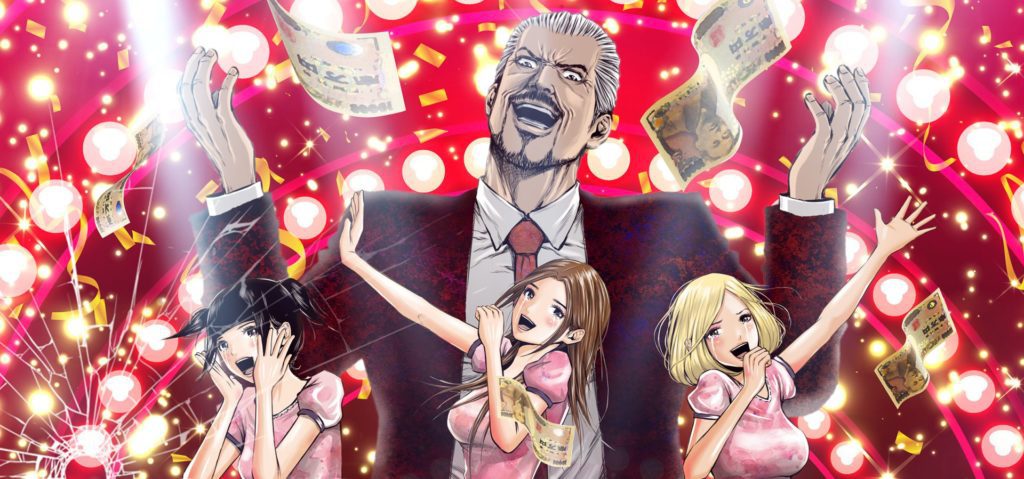
Back Street Girls
After disobeying their boss and messing up a job, three yakuza men are given a choice – commit suicide or go to Thailand and have a sex change to become female idols.
They make the choice to go to Thailand and after grueling idol training, make their debut. Unfortunately for them, they are a hit!
While about distinctly different topics, both of these series are quintessential absurd comedy with weird, intense faces and varying degrees of alcoholism.
However, while Grand Blue keeps things pretty cheerful, Back Street Girls frequently drifts to dark humor.
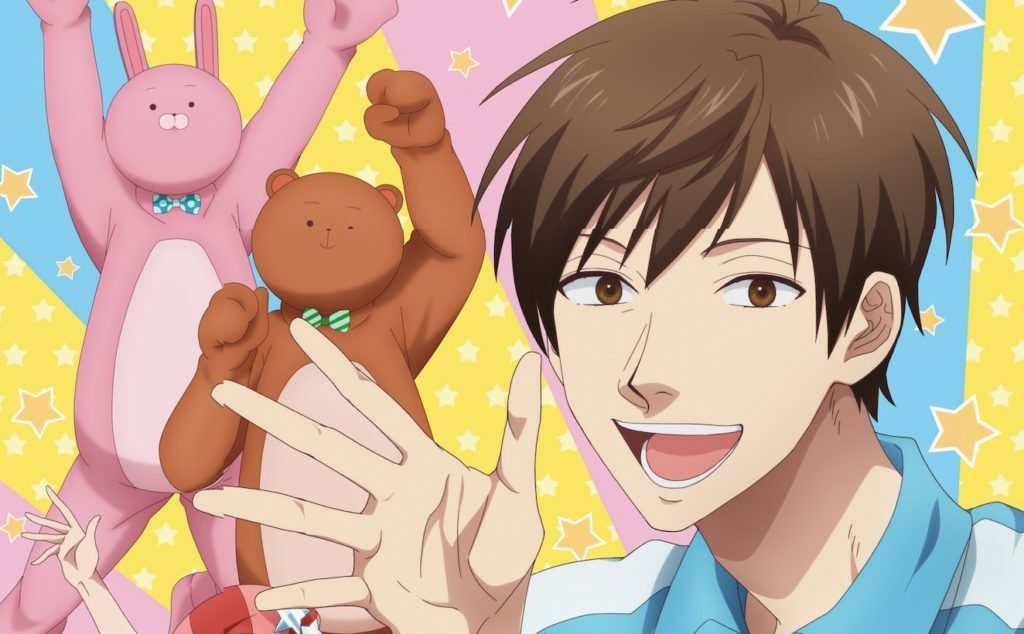
Life Lessons With Uramichi Oniisan
On the set of children’s show “Together with Mama,” 31-year-old Omota Uramichi is upbeat and cheerful to the children, but they are all ultimately put off as they get a taste of his adult angst and darkness that comes out in his cheerful voice.
Yet, failed gymnastic coach Uramichi isn’t the only one who is feeling the burden of a life passing him by. Others on the show suffer similar adult darkness.
Grand Blue is a comedy most relatable to college kids excited to enjoy the newfound freedom of fresh adulthood. Life Lessons With Uramichi Oniisan is a comedy for people that know the dream-crushing part that comes after college.
Indulge that depression by watching Uramichi Oniisan turn his into wonderful dark comedy that can be as comical as it is painfully relatable.
Do you have more anime recommendations like Grand Blue? Let fans know in the comments section below.
